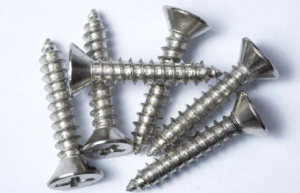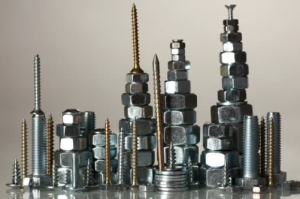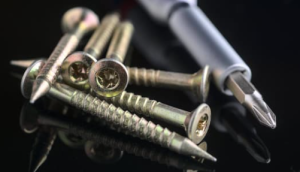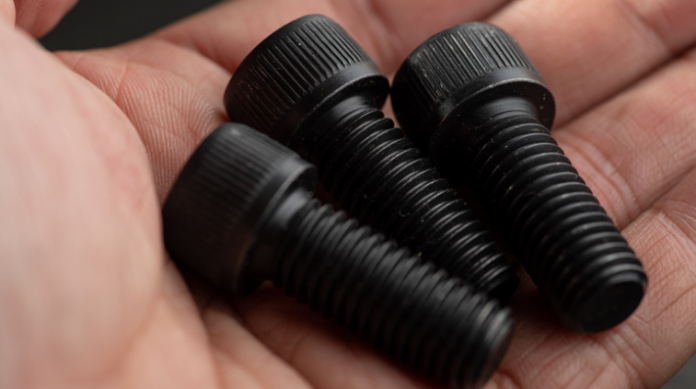Screws are far more complicated than they look, and there are more than a few different kinds out there. The right screw for the job depends on what you’re going to use it for, but how many people know what a socket screw is used for?
Socket screws are most common on assembly lines and in the industrial sector because they are super strong and easy to install. There are a few different socket screw types that each have their own purpose.
Where Socket Screws are Used?
 You aren’t going to be using socket screws for any old DIY project. These screws are far too heavy-duty, which means they need to be used for something that is not only much bigger but will also be facing much larger stress factors.
You aren’t going to be using socket screws for any old DIY project. These screws are far too heavy-duty, which means they need to be used for something that is not only much bigger but will also be facing much larger stress factors.
That’s why socket screws are mostly used by industrial suppliers and on assembly lines. Check any furniture manufacturer, automotive manufacturer, steel fabricator, or machine tooling manufacturer, and you are going to find socket screws used all the time. Sheet metal screws might also be in use, but not on projects of this magnitude.
Types of Socket Screws
 Getting even deeper into the bedrock of understanding socket screws is learning about the different types. You are going to find that there are five different socket screw types, each with different ratings and purposes.
Getting even deeper into the bedrock of understanding socket screws is learning about the different types. You are going to find that there are five different socket screw types, each with different ratings and purposes.
Socket Set Screws – These are designed for use where components on shafts, with adjustable and permanent locations, are required.
Flat Head Socket Cap Screws – This socket screw typically gets countersunk, so you can’t see the head above the surface. Flat-head socket cap screws are best for close-tolerance machinery because height is crucial.
Low Head Socket Cap Screws – The head is roughly 50% lower than your average socket screw and is great for tight fits and areas with height restrictions. Just keep in mind that the preload is lower so don’t just substitute traditional socket head cap screws for these.
Socket Head Cap Screws – This version has the highest preload rating, making it the strongest of the bunch. If you’ve ever encountered socket screws before, there’s a good chance it was one of these.
Button Head Socket Cap Screws – The head is rounded, which makes them good for safety. Other bolts or screws could snag on things like clothing where moving machinery is involved.
Advantages of Socket Screws
 Like screws or nails, there are things to love about using socket screws. Cost, ease of installation, and weight are the three primary factors that make socket screws the ideal choice.
Like screws or nails, there are things to love about using socket screws. Cost, ease of installation, and weight are the three primary factors that make socket screws the ideal choice.
Fewer holes to drill. Because socket screws are very strong, offering a higher clamping force and torque, you don’t have to use nearly as many of them. There are a few advantages to this but one of the biggest is that you don’t have to drill as many holes. That saves time and protects from any damage to the material or other components.
Cost. Like it or not, cost matters on a job or project. Because you don’t need to install as many socket screws versus traditional screws, you are buying a lot less of them. That naturally equates to cost savings other fasteners don’t have.
Less weight. On projects where weight matters for the overall construction project, socket screws become vital. They have a lighter weight than other fasteners without losing tensile strength. Because they can also get smaller than other fasteners like nuts and bolts, they become easier to install and are as strong over the long run.


